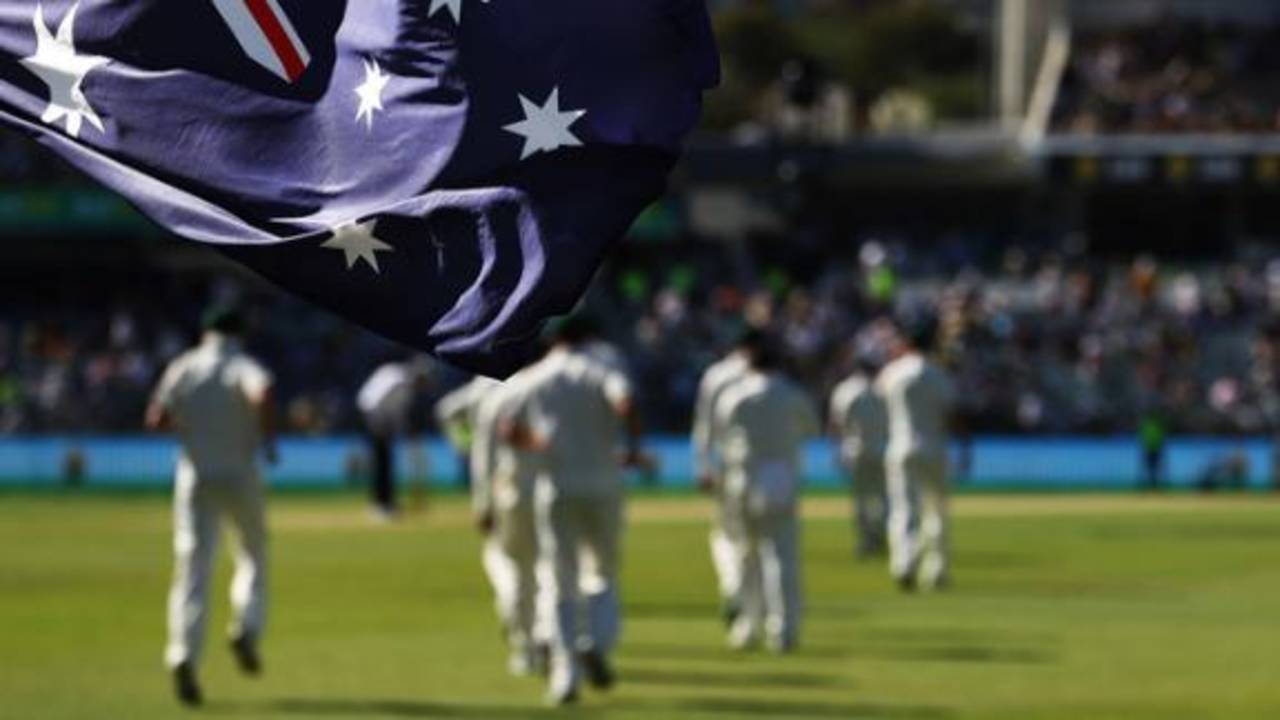Cricket's definition of the bouncer is set to be globally redrawn following a key recommendation of the
Phillip Hughes inquest, stemming from testimony from the ICC umpires training manager Simon Taufel.
James Sutherland, the Cricket Australia chief executive, acknowledged that Taufel's query about the definitions of short-pitched and dangerous bowling would necessitate a discussion involving the ICC and the MCC - traditional keepers of the laws of cricket - about changing the definition of a bouncer from a ball passing between shoulder and head height in the standing position.
Taufel had told the inquest that it was difficult to define exactly how many short balls Hughes had received because not all of them fitted the definition set out in the laws. Sutherland said the structure of the game's laws would mean any changes could not be limited to the Sheffield Shield alone, with implications for international cricket and also the tiers below the first-class arena.
"The observation of the coroner is there's some ambiguity between the laws of the game and our playing conditions for Sheffield Shield cricket which were specifically under review by the coroner," Sutherland told ABC Radio. "I think that by extension because our Shield playing conditions are virtually a mirror of Test cricket playing conditions there is some relevance to international cricket and therefore the ICC.
"So we'll have a close look at that to understand exactly what that was. His findings come from when Simon Taufel was on the stand and was questioned, and that obviously gives rise to something we will pursue and fix up.
"The extension applies down through the grades and in community cricket. The foundation for how the game's played everywhere are the laws of the game. They're the absolute starting point for everyone, and then each competition has their own playing regulations. In this case for Sheffield Shield cricket we'll obviously review where there are some grey areas and fix it from there."
The New South Wales coroner Michael Barnes, QC, concluded that Hughes' death was a tragic workplace accident, a finding Sutherland said he had expected. "Through the proceedings a few weeks ago it was reasonably clear to us it would be something along those lines," he said.
"From the start we really believed it was a tragic accident that occurred on the cricket field and there really wasn't that much that could have been done about it in the circumstances and I think that's what the coroner's found, but at the same time what we want is for the game to be in a place where that sort of thing is far less likely to ever happen again and we'll implement recommendations as we have done from other separate reviews we've conducted ourselves."
The inquest also raised questions about sledging and the spirit of the game. Sutherland sought to draw a distinction between on-field conversation and "banter" and more escalated levels of abuse.
"There is a whole lot of discussion around sledging that is unfortunately placed because it's very generalised," Sutherland said. "The facts of the matter are, just like on most sporting fields, there's always been a level of banter on the field. Some people interpret that as sledging and under the broad definition it may well be, but what is specifically not acceptable is abusive behaviour in word or in action, threatening behaviour in words or in action, those things are clearly breaches of the code, they are taking sledging to the extreme where it crosses the line and it's not acceptable.
"There has been plenty of discussion about it and the comments the coroner makes about the spirit of the game ... is something we shouldn't shy away from. That's always been my view. But when it's out on the field the responsibility rests with the captains and the umpires, the captains are leaders of their players and teams and then the umpires to adjudicate.
"If the lines are crossed then we have very high expectations the umpires will deal with that effectively, and indeed they have the powers to take action, to report players when they believe the line's been crossed. I have high expectations and I think everyone in international cricket does and from a domestic level we want to see that as well and we need to empower umpires to take action."
Daniel Brettig is an assistant editor at ESPNcricinfo. @danbrettig
